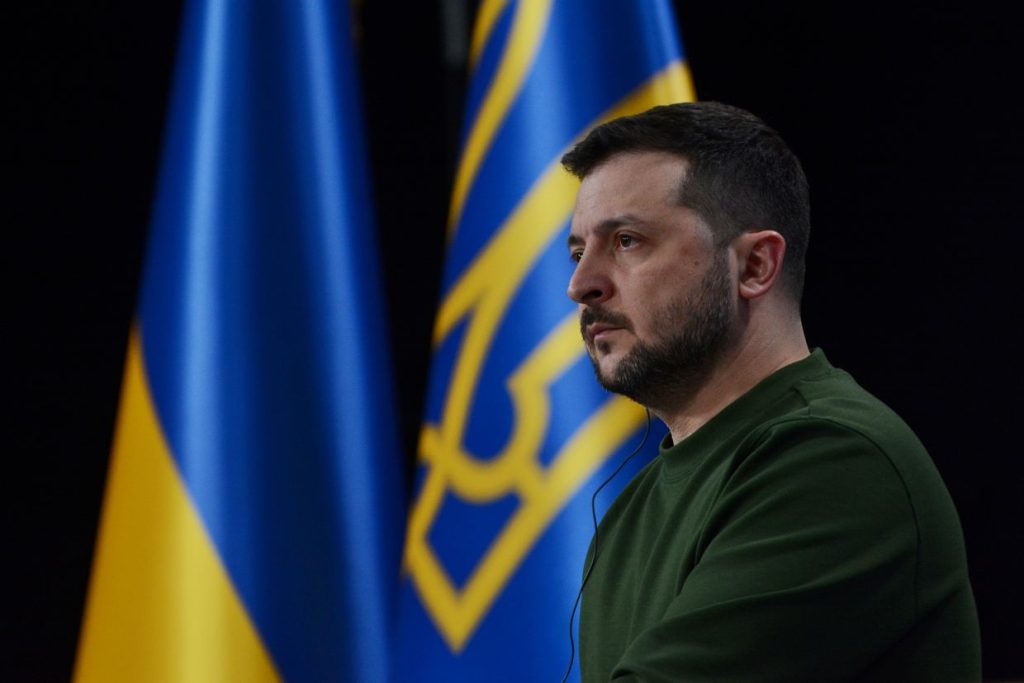President Volodymyr Zelensky expressed skepticism about former U.S. President Donald Trump’s alleged peace plan involving ceding part of occupied Ukrainian territories to Russia. The Washington Post reported on April 7 that Trump had privately suggested pressuring Ukraine to give up Crimea and Donbas to Moscow to end the war with Russia. However, Trump’s advisor, Jason Miller, denied these claims, calling the article “fake news.” Zelensky stated that if the deal was simply about giving up territories, it was a primitive approach and emphasized the need for strong arguments to end the conflict, emphasizing the importance of human lives. Despite the allegations, Zelensky expressed willingness to listen to Trump’s approach if he had a real plan and extended an invitation for Trump to visit Ukraine.
As the conflict between Ukraine and Russia escalated, with Russia’s full-scale invasion of Ukraine in early 2022, the American public overwhelmingly supported sending arms to Ukraine. However, some far-right Republicans in the U.S. have been advocating for ending further aid to Ukraine, despite the ongoing war and humanitarian crisis. Amidst the global condemnation of Russia’s aggression, these Republicans have been adamant in their opposition to providing additional support to Ukraine, raising concerns about the motivations behind their stance. While the majority of U.S. voters have backed sending aid to Ukraine, the minority of far-right Republicans remains steadfast in their position against further assistance, leading to a divided political landscape on the issue.
President Zelensky’s response to the allegations regarding Trump’s peace plan reflects his commitment to seeking a resolution to the conflict that prioritizes the interests of Ukraine and its people. He underscored the need for a pragmatic and realistic approach to ending the war, rather than simplistic solutions that involve territorial concessions. Zelensky’s emphasis on the importance of human lives in the conflict highlights the gravity of the situation and the imperative of finding a sustainable and effective resolution. By inviting Trump to visit Ukraine and engage in a constructive dialogue, Zelensky demonstrated his willingness to engage in diplomatic efforts to end the conflict.
The involvement of former President Donald Trump in discussions about Ukraine’s conflict with Russia raises questions about the impact of U.S. foreign policy decisions on the ongoing war. Trump’s alleged suggestion of pressuring Ukraine to cede territories to Russia as a means of ending the conflict drew criticism from Zelensky and others, highlighting the complexities of navigating international relations in the context of armed conflicts. The denial of the claims by Trump’s advisor adds another layer of uncertainty to the situation, further complicating efforts to address the conflict and negotiate a peaceful resolution. The conflicting narratives surrounding Trump’s role in the conflict underscore the challenges of managing diplomatic relations in times of crisis.
The stance of far-right Republicans on providing aid to Ukraine amid the ongoing conflict reflects a divergence in perspectives within the U.S. political landscape regarding the country’s foreign policy priorities. While the majority of Americans support assisting Ukraine in its defense against Russian aggression, a minority within the Republican Party has taken a different stance, raising concerns about the impact of partisan politics on international relations. The debate over aid to Ukraine highlights the complexities of navigating foreign policy decisions in a polarized political environment and underscores the need for a cohesive and unified approach to supporting Ukraine in its struggle for sovereignty. The divergent views within the U.S. political landscape on Ukraine’s conflict with Russia underscore the challenges of maintaining consensus on critical foreign policy issues in a divided political climate.


